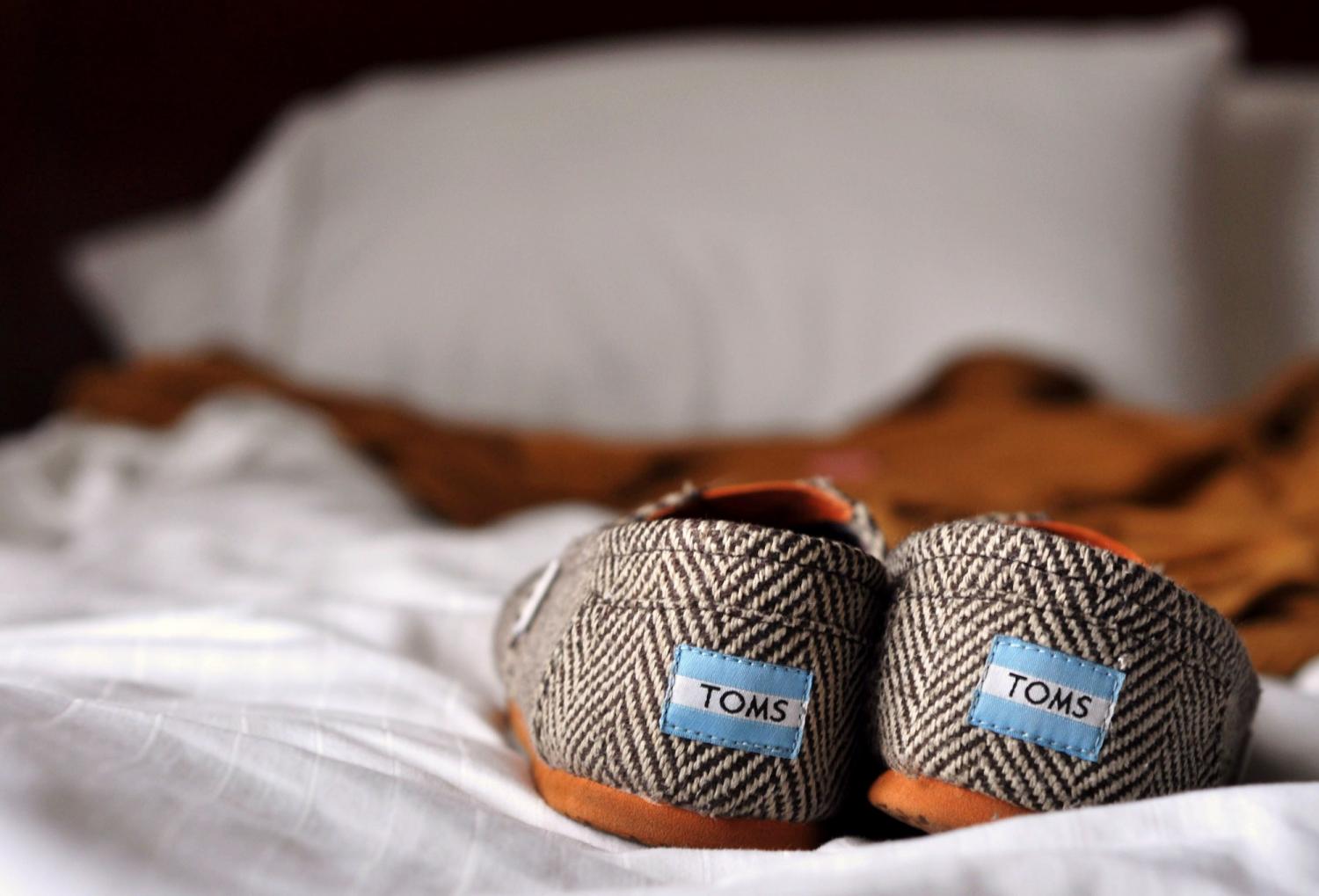
Remember the old proverb about how it's better to teach a man to fish then catch a fish for him to eat? I am reminded of that saying when I think about TOMS Shoes buy-one pair, give-one pair model. A Fast Company article points out that the model “does not actually solve a social problem.” Instead, it functions more like colonialism, diving in to local economies to solve problems rather than listening and figuring out how best to help.
There are several big problems with TOMS' model: by giving away shoes, it creates a dependency, and it disrupts local economies. Values and Capitalism points out that the TOMS model “needs improvement” because “giving away free stuff… almost always has a negative long-term impact on local economies.”
While it may be harsh to call the TOMS model another form of colonialism, it is fair to say that it is essentially based on paternalism. While doing research for this article, I stumbled across an insightful blog titled, A Personal Diaspora. The author of the blog, in a post about TOMS, warns that paternalism “creates dependency, removing the responsibility to provide from the poor themselves to some unknown (to them) outside source.” In other words, paternalism gives a fish and never teaches how to fish.
Fast Company suggests three things TOMS can do to improve its model:
- Better understand the problem of poverty in developing countries. The problem of poverty is deeper than just children lacking shoes. It is important to know the systemic reasons for poverty in a given society.
- Create a solution, not a band-aid. Developing countries do not need paternalism.
- Innovate business models, not marketing campaigns. The TOMS model is a great marketing campaign in that it appeals to a person’s sense of compassion.
Are there alternatives to the TOMS model?
There are two companies that operate from the “teach a man to fish” paradigm: Oliberté Footwear and SoleRebels. Both are based in Africa. Canadian Tal Dehtiar started Oliberté in 2009. The name itself comes from the French word for freedom and the “O” in the Canadian’s national anthem. Oliberté makes shoes in Africa using local materials and sells them in Western countries. The company went from 200 pairs sold in the beginning, to 10,000 in 2011.
Oliberté’s shoes are made in Ethiopia with leather “sourced from local free-range cows, sheep and goats,” according to an article by Good. The natural rubber in the soles of the shoes is processed in Liberia. Last year, the company expanded its line to include leather bags and accessories that are made in Zambia, with some of the leather coming from Kenya. The woven labels on the products are produced in Mauritius.
Oliberté’s website states that the company “partners with factories, suppliers, farmers and workers to produce premium footwear in Africa” and creates “fair jobs, with the goal of contributing to the development of a thriving middle class.” The company calls itself the first to “make premium leather shoes and goods exclusively in Africa.”
SoleRebels is a shoe company founded by Bethlehem Tilahun, an Ethiopian. It employs about 100 workers, and pays four times the legal minimum wage and three times the industry average wage for similar work in Ethiopia, plus covers workers’ healthcare costs.
Tilahun said something about TOMS that sums it up: “If you give a kid shoes, they wear out or they grow out of them, and then what do they have? If you give the kid’s parents a job, the whole family will always have shoes.”
Photo credits: Ariel Waldman/Flickr

Gina-Marie is a freelance writer and journalist armed with a degree in journalism, and a passion for social justice, including the environment and sustainability. She writes for various websites, and has made the 75+ Environmentalists to Follow list by Mashable.com.














